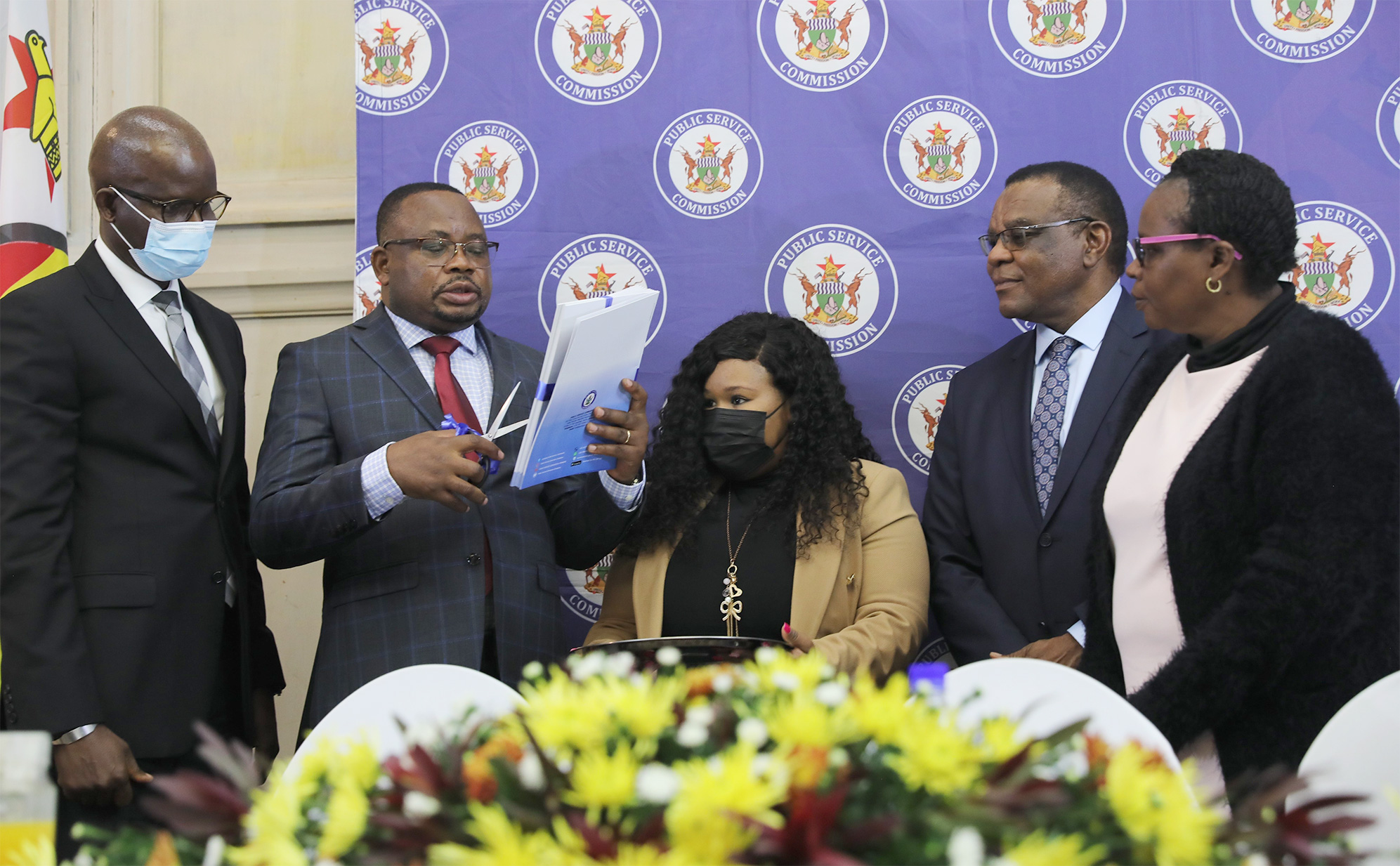Milestone as Zimbabwe Government puts Sexual Harassment Policy in place
July 27, 2022

(l-r) UNDP Deputy Resident Representative, Elliman Jagne; Ministry of Public Service, Labour and Social Welfare Minister, Hon. Prof. Paul Mavhima; Public Service Commission Head of Legal services, Protocol and Corporate Affairs, Ms N. Chivake; Chairperson of the Parliamentary Portfolio on Women Affairs, Community, Small and Medium Enterprise Development, Hon C. Madiwa
The Public Service Commission (PSC) today launched the Public Service Sexual Harassment Policy at an event in Harare, Zimbabwe. The launch of the policy marks a key milestone in Zimbabwe’s journey towards the eradication of sexual harassment in the workspace and inclusive public service.
In 2020, United Nations Development Programme (UNDP) collaborated with the Public Service Commission to undertake a Baseline Study that assessed the knowledge, attitudes, and perceptions towards sexual harassment within the Public Service. The results of the study confirmed that sexual harassment (both verbal and physical) remains common, inadequately addressed, and negatively impacts the effectiveness and efficiency of employees. The findings also confirmed the need for collective and coordinated action towards addressing this social ill, hence leading to the development of sexual harassment policy.
Speaking at the launch, the guest of honour, Honourable, Professor Paul Mavhima, Minister of Public Service, Labour and Social Welfare, applauded the PSC for facilitating the development of the policy to ensure a conducive work environment that is free from sexual harassment, exploitation, and abuse “The principle of the policy is to protect the dignity of the workers in the Public Service which is an imperative pre-requisite for maximum work productivity and effective service delivery”
Dr Vincent Hungwe, Chairman of the Public Service Commission described in detail the effects of sexual harassment as it is defined by the Labour Act of Zimbabwe. “There has been reluctance by victims to report sexual harassment incidents and cases due to various reasons including fear of the unknown outcomes, fear of retaliation from the perpetrator, family or societal pressures. The policy seeks to address the shortcomings that have existed in the public service when dealing with sexual harassment.”
The policy provides guidelines on reporting, investigating, and procedures for handling cases of sexual harassment, and this is key in addressing the impacts of sexual harassment. Additionally, the policy will help to reduce sexual harassment cases and create a safer workspace that is coupled with practical measures and systems that prevent and respond to sexual harassment.
In closing, Elliman Jagne, UNDP Deputy Resident Representative emphasized that the success of this policy is strongly dependent on a collective and common approach with all stakeholders effectively participating in implementing the policy. “Collectively, we all have a role to play in raising awareness on the policy and the impact of sexual harassment in the public service. Let us build towards culture and legacy of public administration that is free from sexual harassment and harmful practices.”
UNDP supported the development of the policy with technical expertise and funding under the European Union (EU) funded Spotlight Initiative.

 Locations
Locations